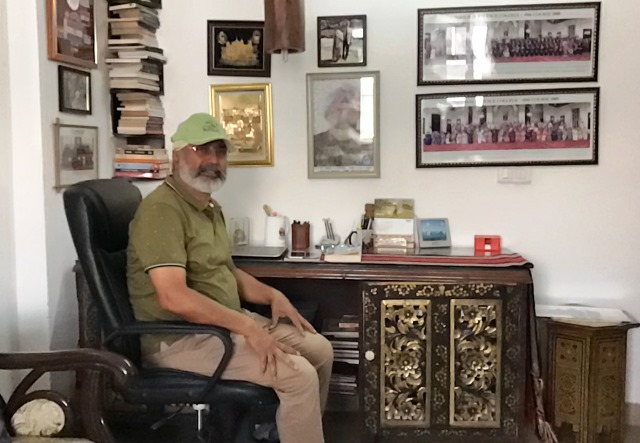Lt Gen (Retd) Ike Singha reminisces his first quarantine at National Defence Academy in 1974 due to chicken pox and the bonding between the grounded batchmates
We were first time quarantined in May-June 1974, at National Defence Academy, Khadakwasla, in Kilo Squadron, the reigning champion Squadron, towards the very end of our first term. One flank of the ground floor consisting of freshers was segregated for three weeks because one of us had been detected with chicken pox. Life at the academy starts early at 5 AM and is so hectic that by lights-out time at 10.30 PM, we used to fall flat on the bed; off to sleep within a minute, and were dead to the world till 5 AM.
Our quarantine meant that we were confined to our rooms, called cabins in NDA, based on the Naval tradition; and did not have to attend drill, physical training, riding, swimming, academic classes and sports activities. We were served meals in our flank itself. Unlike the present lockdown, we did not have to sweep our rooms and wash our clothes. All facilities were extended to us after taking due precautions. In fact, it was one great holiday during which twelve of us bonded exceedingly well. Till now, when we are all grandfathers, we are closer to each other than the other batchmates.
ALSO READ: ‘How I Turned The Tables On Lockdown’
As first termers, it was a blessing in disguise, as we could rest and recoup while no seniors could punish or rag us. We got a sadistic pleasure in staying up in the bed while listening to announcements for morning muster followed by the NDA prayer before the entire squadron, but for the dirty dozen, marched off on their bicycles for a long, gruelling and treacherous day ahead.
We generally missed our bed tea and only surfaced in our pyjamas for breakfast. It seemed that the term break which was a month away, had already started for us! We played dumb charades and also did jamming as there were one or two good singers amongst us. Three of us had cleared the first tier of drill square test taken by the Subedar Major of the Academy. The second stage was more stringent as the Adjutant in his test dropped half the candidates who had cleared stage one. We were thrilled to see our name in the pass list in spite of missing the Adjutant’s test!
ALSO READ: ‘Lockdown Made My Kids Prospective Chefs’
There was the flip side to the lockdown as well. The seniors would quietly sneak into our corridor and give us their set of eleven brass buttons each, which needed to be polished for the white patrol to be worn on Passing Out Parade. Each one of us landed up with four to five sets of these brass buttons. Some seniors also borrowed our rain capes and cycles and we were not sure in what shape they would be returned. Some academically weak seniors gave us notes to be copied from their brighter course mates. Seniors ensured all these encounters were done in a clandestine manner as special operations!
There were occasional fist fights when some early birds had taken more than their share of food especially the tipsy pudding. We missed some of our academic and physical tests which were mandatory to clear before going home on term break. Those who had not cleared their tests or had failed them once the lockdown was lifted, had to come one week earlier from home for practice, preparation and retests. Memories of those lovely three weeks, nearly half a century ago came back vividly during the ongoing lockdown when one had to help in the daily chores!
